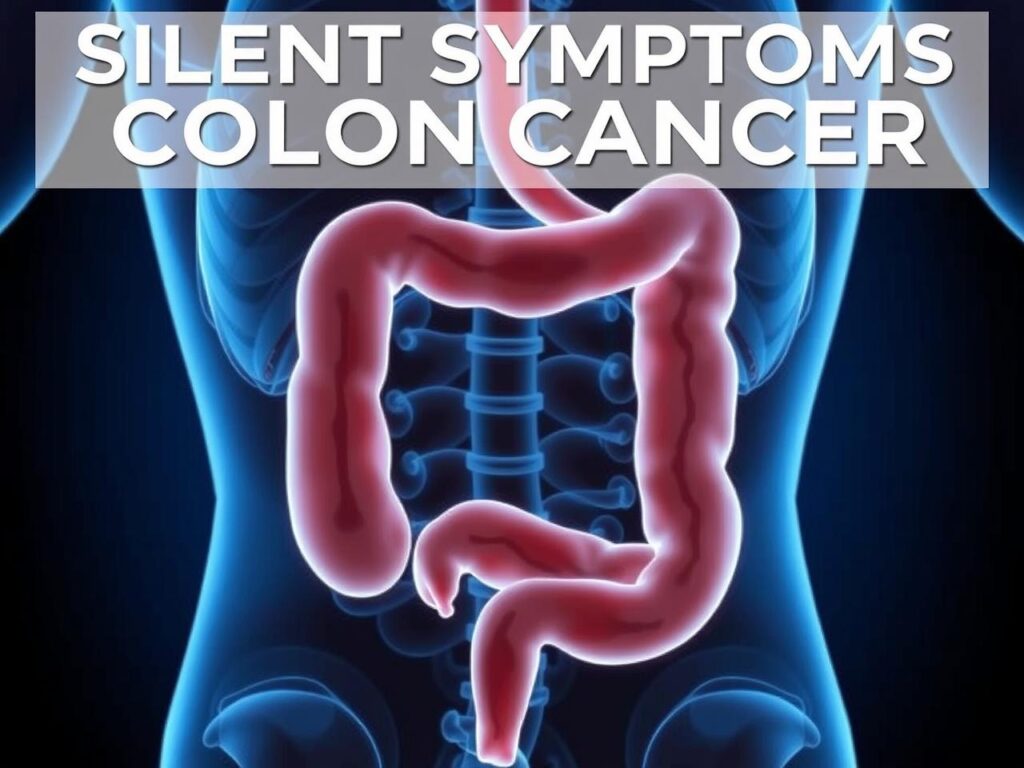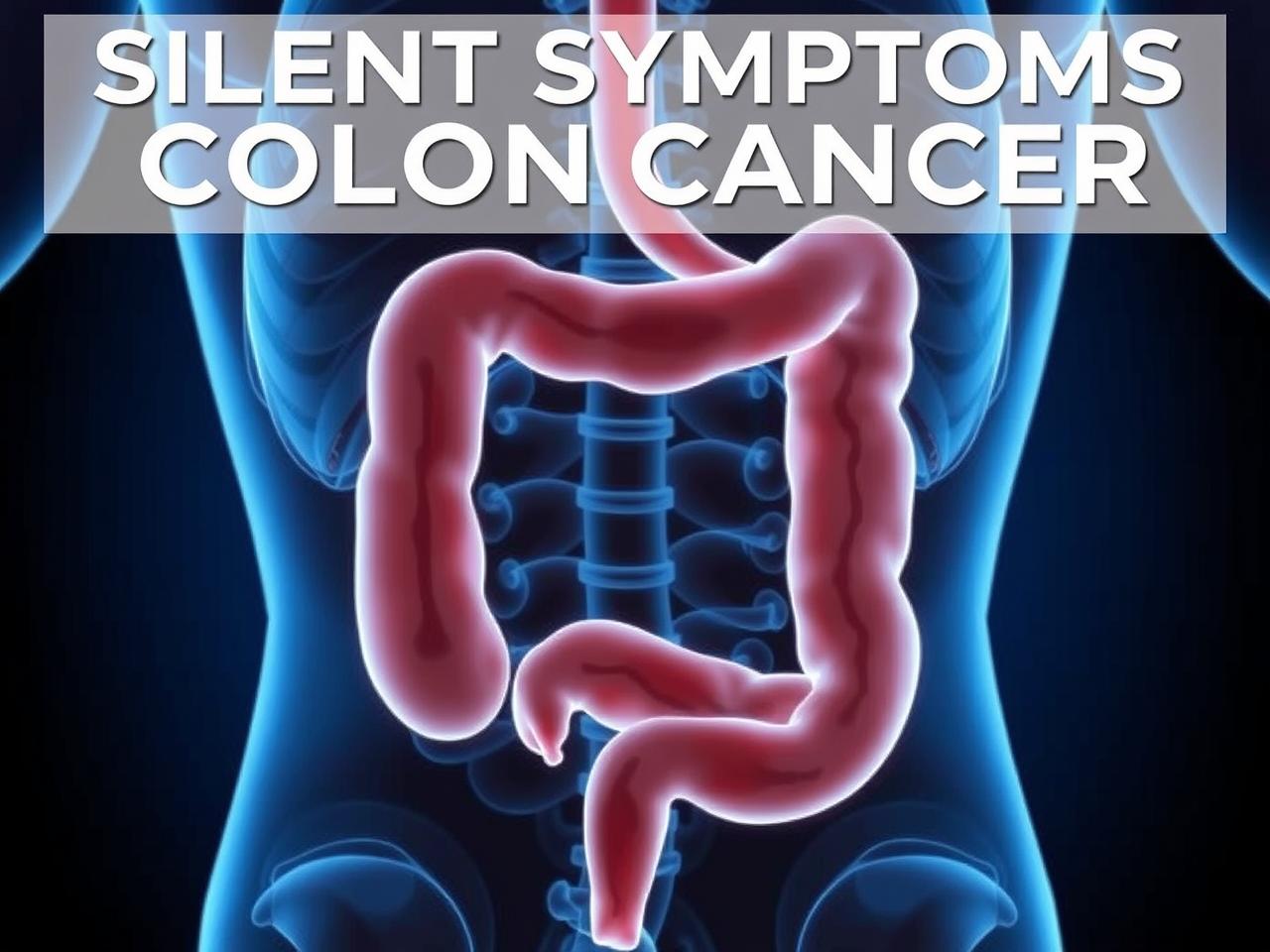6 Silent Symptoms Of Colon Cancer to Never Ignore
Colon cancer originates in the large intestine, or colon, and ranks as the third most prevalent cancer among both males and females. Projections indicate that more than 100,000 new colon cancer cases will be diagnosed in the United States this year. Early detection plays a critical role in treatment success, with earlier diagnosis significantly improving survival rates.
Consequently, it is essential to recognize the subtle signs of colon cancer, as these symptoms may not be readily associated with the disease. Awareness of these less obvious indicators can lead to timely medical intervention and potentially life-saving treatment.
Key Takeaways
- Colon cancer is a prevalent disease and early detection is crucial for successful treatment.
- Silent symptoms of colon cancer may not be immediately associated with the disease and are often overlooked.
- Unexplained weight loss can be a silent symptom of colon cancer, with a percentage of patients experiencing this.
- Changes in bowel habits, fatigue, and abdominal pain/discomfort can also be signs of colon cancer.
- Recognizing and addressing these silent symptoms is important, and early detection greatly improves outcomes.
Silent Symptoms of Colon Cancer

Silent Symptoms of Colon Cancer
These symptoms may not be directly linked to colon cancer and are often misattributed to other causes. However, it is crucial to recognize them and seek medical attention if they persist.
Common Silent Symptoms
Some common silent symptoms of colon cancer include unexplained weight loss, changes in bowel habits, fatigue, and abdominal pain or discomfort. These symptoms may seem insignificant on their own, but they can be indicative of a more serious underlying issue.
Importance of Early Detection
Early detection is critical in the treatment and management of colon cancer. If you experience any of these silent symptoms, it is essential to consult a healthcare professional for proper diagnosis and treatment.
Unexplained Weight Loss

Unexplained weight loss can be a silent symptom of colon cancer. According to cancerstatisticscenter, approximately 40% of colon cancer patients experience unexplained weight loss. This weight loss may occur even if a person is eating normally, and can be a result of the body’s immune response to the cancer.
It is important to pay attention to any unexplained weight loss and seek medical evaluation if it occurs.
Changes in Bowel Habits
Changes in bowel habits, such as diarrhea, constipation, or narrowing of stools, can be a sign of colon cancer. These changes may occur due to the presence of a tumor in the colon, which can affect the normal functioning of the digestive system. It is important to pay attention to these changes and seek medical attention if they persist, as they could be indicative of colon cancer.
Fatigue
Fatigue can be a silent symptom of colon cancer, and approximately 50% of colon cancer patients experience fatigue, according to cancerstatisticscenter. This fatigue may be a result of the body’s immune response to the cancer, as well as the physical and emotional toll of dealing with the disease. It is important to pay attention to any unexplained fatigue and seek medical evaluation if it occurs.
Abdominal Pain or Discomfort

Pressure and Blockage in the Digestive System
The tumor’s presence can lead to pressure or blockage in the digestive system, resulting in abdominal pain or discomfort. It is essential to take these symptoms seriously and not ignore them, as they could be indicative of colon cancer.
The Importance of Medical Evaluation
If you experience persistent abdominal pain or discomfort, it is crucial to seek medical evaluation promptly. A thorough medical evaluation can help determine the underlying cause of your symptoms and rule out the possibility of colon cancer.
Don’t Ignore the Symptoms
Remember, ignoring these symptoms can have serious consequences. It is vital to prioritize your health and seek medical attention if you experience persistent abdominal pain or discomfort. Early detection and treatment can significantly improve treatment outcomes for colon cancer.
Conclusion and Importance of Early Detection
In conclusion, it is important to recognize and address the silent symptoms of colon cancer, as early detection can greatly improve outcomes. If you experience any of these symptoms, it is important to seek medical attention as soon as possible. By being aware of these silent symptoms and seeking early detection and treatment, you can greatly improve your chances of successful treatment and survival.
Don’t ignore the signs – early detection saves lives.
FAQs
What are the silent symptoms of colon cancer?
Some silent symptoms of colon cancer include changes in bowel habits, blood in the stool, unexplained weight loss, fatigue, abdominal pain, and a feeling that the bowel doesn’t empty completely.
Why are these symptoms considered “silent”?
These symptoms are considered “silent” because they can be subtle and easily overlooked or attributed to other less serious conditions. Many people may not realize they are signs of colon cancer until the disease has progressed.
When should I seek medical attention for these symptoms?
If you experience any of these symptoms, especially if they persist for more than a few weeks, it is important to seek medical attention. Early detection and treatment of colon cancer can greatly improve the chances of successful outcomes.
What are the risk factors for colon cancer?
Risk factors for colon cancer include age (over 50), a family history of colon cancer or polyps, a personal history of inflammatory bowel disease, a diet high in red or processed meats, obesity, smoking, and heavy alcohol use.
How is colon cancer diagnosed?
Colon cancer is typically diagnosed through a combination of screening tests, such as colonoscopy, fecal occult blood tests, and imaging tests like CT scans or MRI. If abnormalities are found, a biopsy may be performed to confirm the presence of cancer.
What are the treatment options for colon cancer?
Treatment for colon cancer may include surgery to remove the cancerous tissue, chemotherapy, radiation therapy, targeted therapy, and immunotherapy. The specific treatment plan will depend on the stage of the cancer and other individual factors.
Source:







